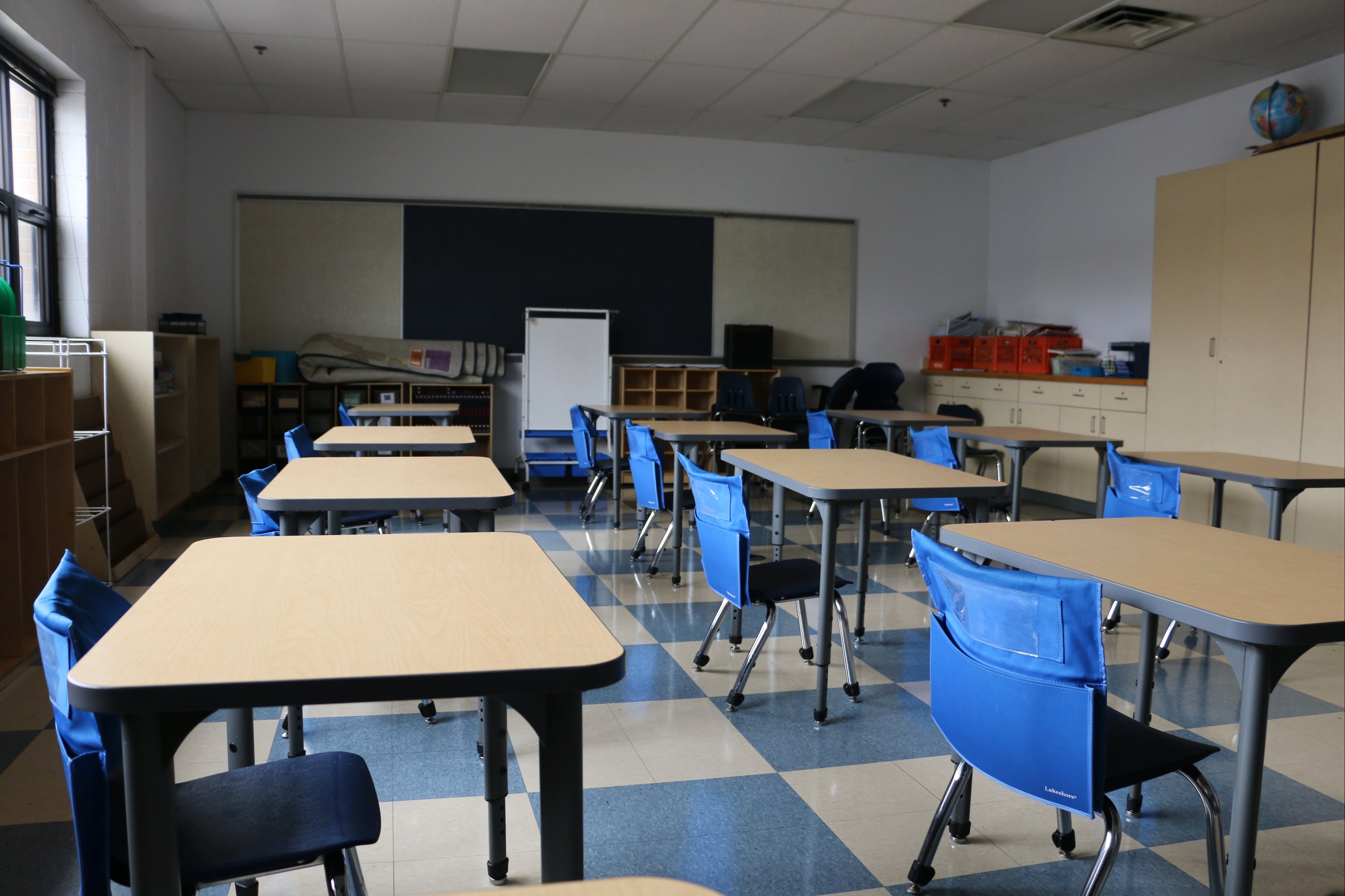Students who are homeless face suspension and expulsion at much higher rates than do their peers in Michigan schools.
Statewide, 17% of students who have experienced homelessness were suspended or expelled in 2017-18 compared with 8% of all students in Michigan’s district-run public schools. The rates are especially high in Wayne and Macomb counties, researchers found.
Those are among figures highlighted in an interactive map recently created by the Poverty Solutions Center at the University of Michigan based on its earlier analysis of data from that school year.
For example, the discipline rates for students who have been homeless are 38%, 37% and 36% in Hamtramck, Eastpoint, and Westwood school districts, respectively.
Benton Harbor Area Schools (41%), Atlanta Community Schools (41%) and Flint Community School District (41%) have the state’s highest discipline rates for students who have been homeless.
Superintendents of those districts did not respond to requests for comment. Many districts are on spring break this week.
The numbers are troubling and could be even higher, said Poverty Solution Center senior researcher Jennifer Erb-Downward, who suspects many districts underreport discipline.
“If you have a student that doesn’t have a fixed living space, school may be the only stable place they have. To expel them from that place can be devastating,” Erb-Downward said. “It’s pushing them out of a system we want them to be able to engage with.”
The percentages are similar in other states.. Other studies have shown that students experiencing homelessness in Texas, Indiana, and Washington, for example, are at least twice as likely to be suspended as their peers.
Researchers want administrators to consider the reasons behind student misbehavior.
School administrators “need to step back from that moment when something is happening in the classroom and hallway and think about how to diffuse that situation when there is something underlying the behavior that is more than just a discipline issue,” Erb-Downward said.
Suspension and expulsion seldom lead to the desired behavior change, according to studies by Johns Hopkins University and American Institutes for Research. Instead, they likely make students feel more disconnected from school and more likely to drop out, Erb-Downward said.
Researchers hope their work will spark conversations about school discipline and changes that de-emphasize punishment and lean toward connecting traumatized students with resources.
The Student Advocacy Center of Michigan wants to be part of those conversations. The center works to ensure children stay in school and understand their rights to a quality public education.
The center is asking districts with the highest discipline rates to revisit their policies.
“A different policy choice could mean we’re going to find another way to educate young people who’ve made a mistake,” said Peri Stone-Palmquist, the center’s executive director.
Among her recommendations are:
· Convene discipline policy committees that include teachers, students, principals, community mental health providers, and the district’s homeless liaison.
· Require districts to consider traumatic experiences in students’ background before punishing them.
· Allow students to appeal discipline to county, regional, or state-level arbiters.
· Consider alternatives to suspension and expulsion that can be more effective and less likely to lead to dropping out.
· Add homelessness as a factor schools must consider before removing a student from school.
· Hold suspension and expulsion hearings within 10 days of removal from school so students and their families have a chance to be heard sooner.
· Invest federal COVID-relief dollars in mental health initiatives.
Michigan has been moving away from automatically suspending or expelling students who bring items to school that can be used as weapons. A 2018 state law requires districts to consider seven factors including age, disability, and disciplinary history before suspending or expelling. That doesn’t always happen.
Democratic state Senators Jeff Irwin of Ann Arbor, Erika Geiss of Taylor, and Adam Hollier of Detroit have introduced bills to change school discipline policies, but they haven’t yet come to a vote.
One of the bills would establish an appeals process and would require districts to disclose data about suspended students including race, gender, ethnicity, disability status, and whether they are homeless.
Another bill would require independent decision-makers to authorize expulsions or suspensions of more than 10 days. It also would require districts to develop individualized education plans for students who are removed from school.
A third bill would require districts to determine whether behavior leading to potential discipline is related to homelessness, whether removal from school would create a barrier to enrollment and retention of the child, and whether a behavior plan would better address the violation.
Erb-Downward’s research shows that nearly 1 out of 10 Michigan children will experience homelessness at some point before they graduate high school. According to the latest data from the National Center for Education Statistics, 2.7% of Michigan’s public school students were homeless in 2014-15, slightly above the national average of 2.5%.
“That really is a large number of students who are having housing instability that we know has long-term impacts,” Erb-Downward said. “That’s why we have to get out in front of this.”
Tracie Mauriello covers state education policy for Chalkbeat Detroit and Bridge Michigan. Reach her at tmauriello@chalkbeat.org.






